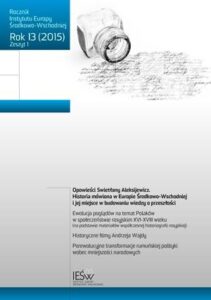Post-Revolutionary Transformations of the Romanian Policy Towards National Minorities
ORCID: Tomasz Kosiek: 0000-0002-6798-6842
Strony: 171-188
Wydanie: Lublin 2015
DOI: --
Słowa kluczowe: national minorities in Romania, protection of national minorities, Romania
Abstrakt:
The Romanian Revolution of December 1989, resulting in the fact that Nicolae Ceauşescu, who ruled the country since 1960s was removed from power, initiated a series of political, social and economic changes. Romania as a non-heterogeneous state in terms of ethnicity was forced under the emerging democratic system to develop legal solutions governing relations between the state and the minorities. Developing concepts that would be satisfactory to the State and the Romanian elites as well as the minority circles was a lengthy and very complex process. The path to the emergence of compromise legislation, including in the field of language and education, required many years of work and overcoming mutual prejudices and mistrust. Finally, after over two decades since the revolution, Romanian political elites and the representatives of several national minorities living in Romania created a system that is seen in the eyes of European decision-makers as an example worthy of following. At a closer inspection, it turns out that the adopted legal solutions are not free from defects. An example of this is the phenomenon of an “ethno-business” as well as the fact that so far the Romanian legislation could not clearly define the category of a “national minority”. Undoubtedly, a sign of the fact that Romania as a country and its citizens have coped with their ethnic heritage is the outcome of the last presidential election of December 2014, which, dominated by ethnic Romanians, introduced Klaus Iohannis, who is a representative of the German minority, to the Palace Cotroceni in Bucharest – the seat of the presidents of Romania.

PDF: Pobierz